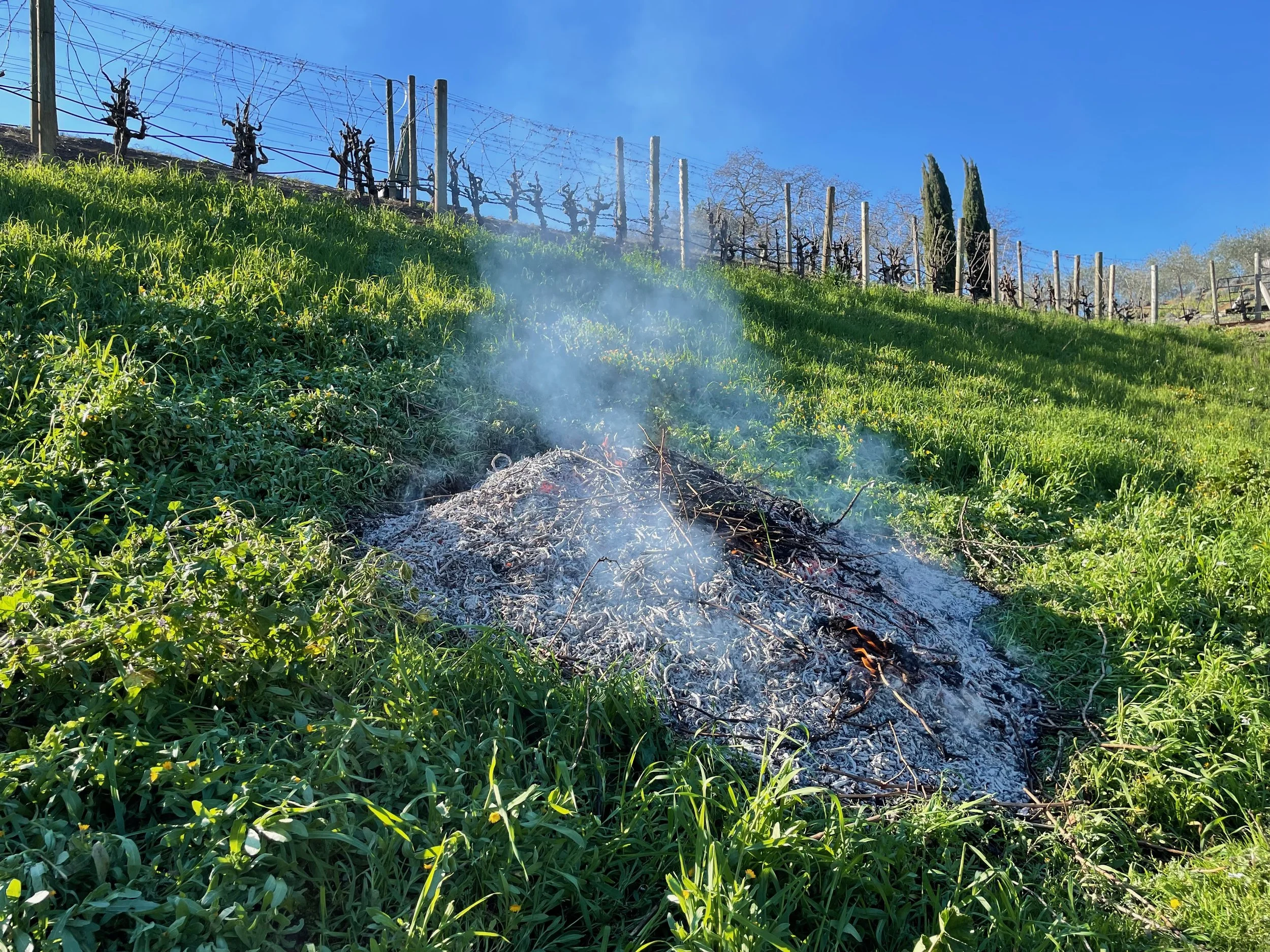Day 19: Such branches are picked up, thrown into the fire, and burned
Jesus slowly inhales and exhales. He looks around at the disciples as they struggle to understand the teaching of the vineyard, the teaching of abiding, the teaching of staying IN Jesus, and the dire consequences of not abiding, not being connected. The night is cool, and everyone is tired from the deep conversation and wine at dinner, but it’s just like Jesus to stop and take every opportunity to teach.
The disciples sense Jesus’ urgency this evening, and, even though a sense of dread grows in their hearts, they listen closely. Jesus continues with the theme of the dry branches, and says quietly,
“Such branches are picked up, thrown into the fire, and burned.”
He sighs as if he really didn’t want to say this.
The disciples have all seen the little fires this time of year, burning up the canes that have been cut off the vines and left to dry. The disciples exchange glances as they bristle against this thought, perhaps muttering questions under their breath. “What does this mean, Lord?” Jesus nods, knowing their distress, but he doesn’t soften the image. He knows the truth. Not being connected to the vine, not remaining in him brings death, not life.
Vineyard Metaphor
Every spring in wine country, it is not uncommon to see columns of smoke rising from different fields. The vineyard workers pruned the vines a couple months ago, leaving the canes in the middle of the rows before collecting them into large piles in an open field. The canes must dry even more before they will burn properly.
Sometimes, a vineyard manager will choose to chip up the dried canes and make mulch instead of burning them. Either way, the pruned and dried canes are of no use to the vine. They will never be fruitful again.
The image of a burning pile of dry branches is alarming and a warning.
When we are not attached to the life-giving sap of the Vine, dryness and death is our destiny. Perhaps this seems overly dramatic, but what Jesus points out is quite simply inevitable. Branches that are not attached to the source of life will die.
Jesus uses the dry, burning canes as an effective visual to illustrate the difference between a flourishing life IN him and a dying life disconnected from him. Nowhere in the flow of his discourse does he refer to an angry Gardener cutting off fruitless disciples. Quite the contrary.
The very act of pruning is an act of love. Pruning canes that have already been fruitful and will not be fruitful again makes way for the next harvest of fruit to hang on the branches. When we allow God to intentionally prune thoughts, activities, stuff, or habits from our life that may have once been fruitful but are no longer producing fruit, it may feel harsh at first, but we can know his loving pruning is making way for something new and beautiful to grow.
Reflection and Meditation
As you sit with the image of a pile of burning branches, what sensations surface ?
Can you feel the heat? Hear the crackle of dry wood burning? Can you smell the smoke?
Perhaps you are seeing an image of your life, apart from God. Could you admit to the dryness and death, and ask God to connect you to the Vine and give you life?
Maybe there's something in your life that was once fruitful but is no longer serving you. Could you surrender to the Gardner, asking him to lovingly prune it away to make room for something new?
Talk to God about what you are sensing. Hear the invitation of God to lifelong flourishing.
Imagine what it would be like to truly rest in God’s presence.
“Grateful people learn to celebrate even amid life’s hard and harrowing memories because they know that pruning is no mere punishment, but preparation.”

